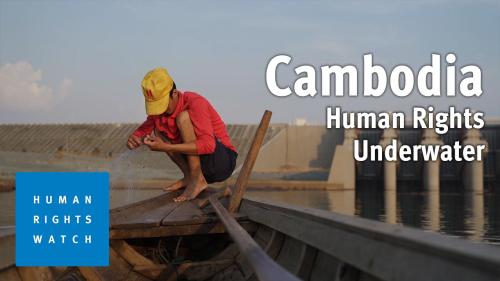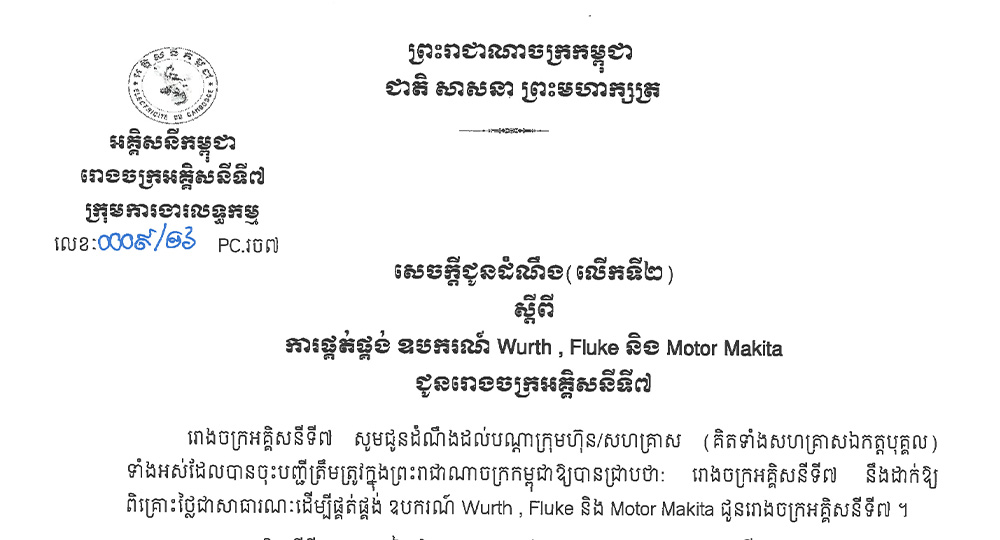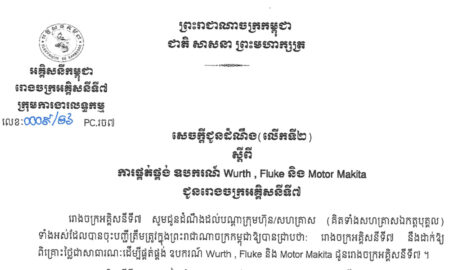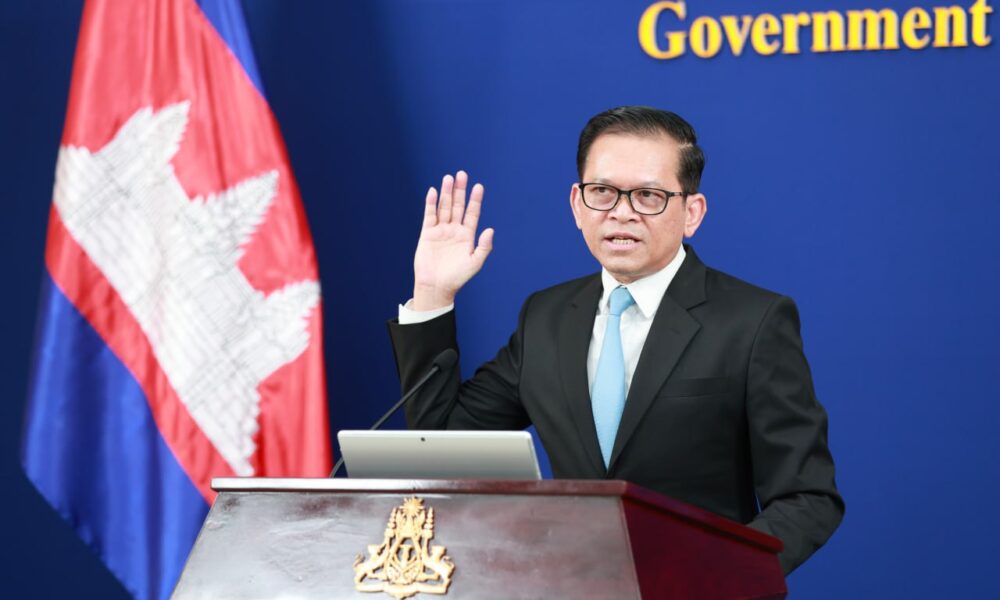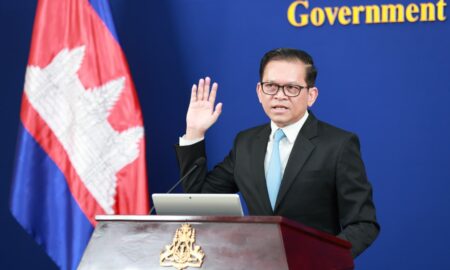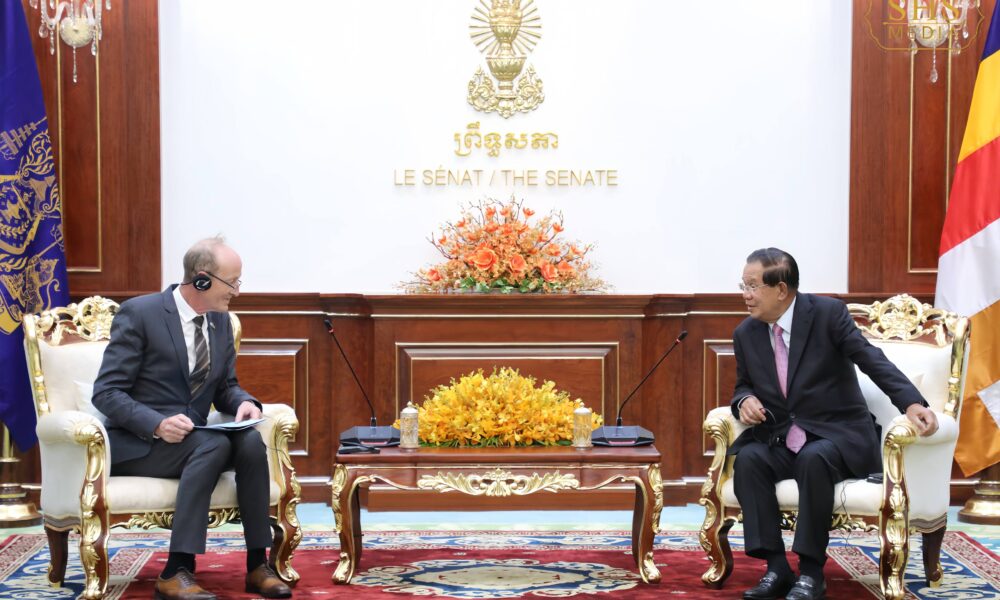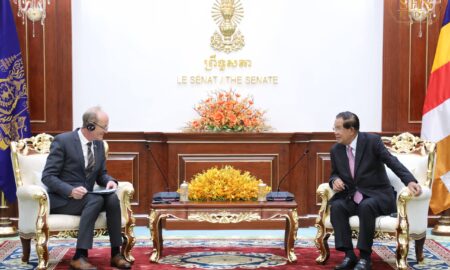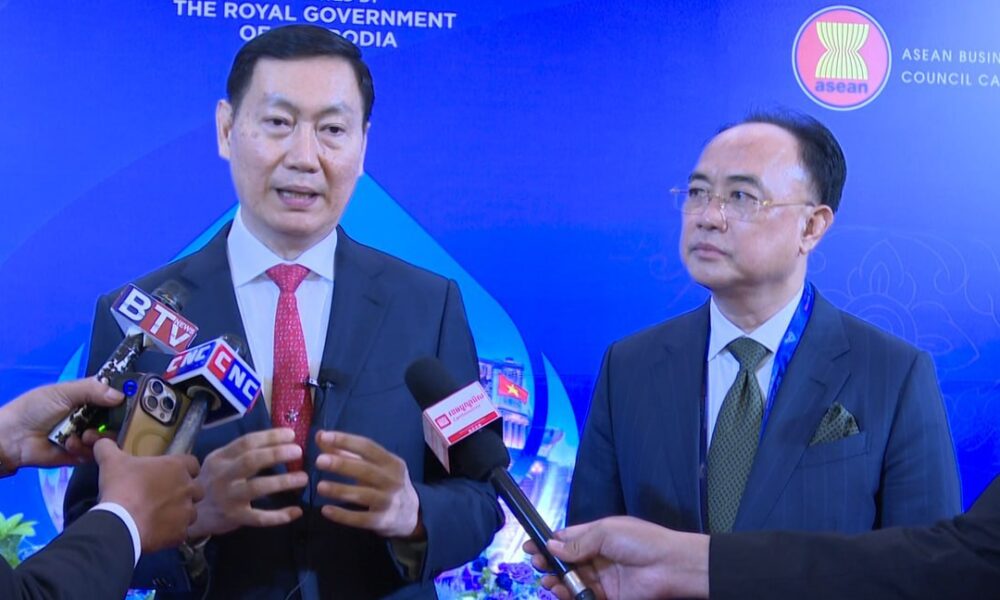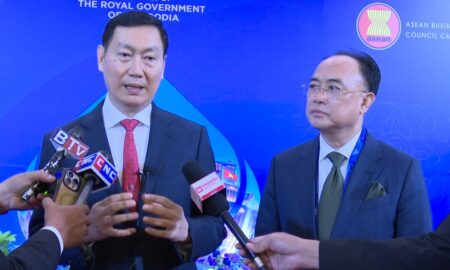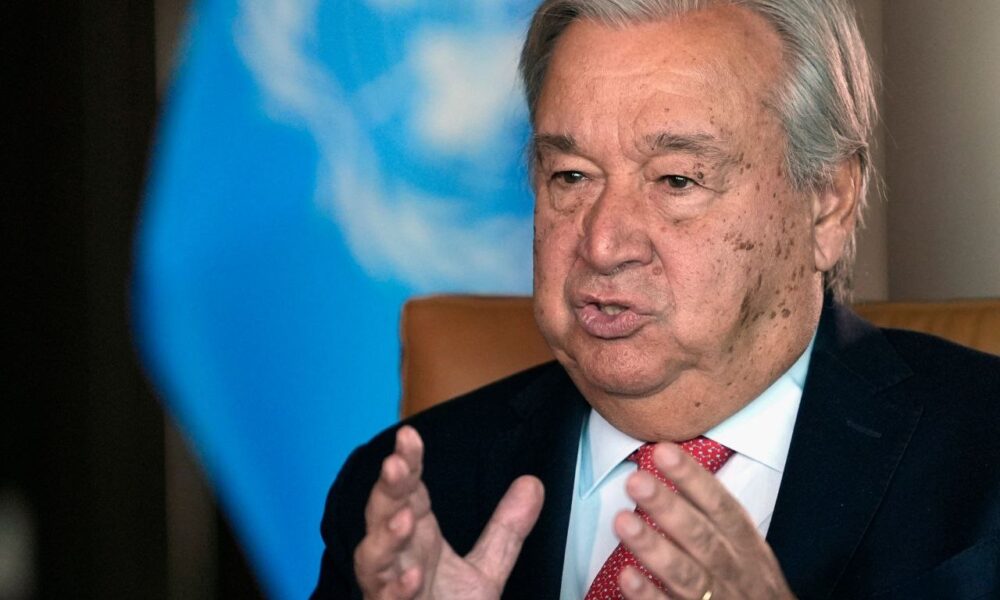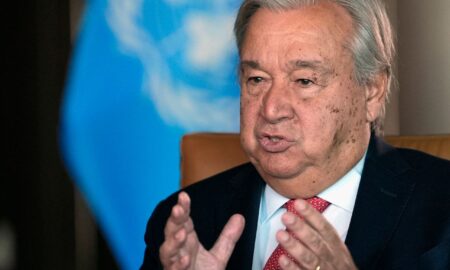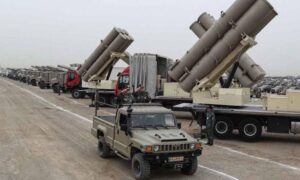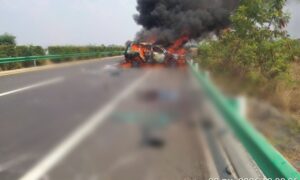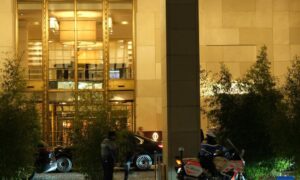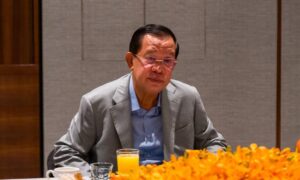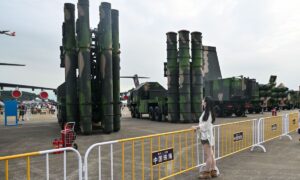On October 1, 2021, an in-depth report published on the Cambodian Tamarind Tree News Network (DAP NEWS), informed the world of the current state and quality of life four years after it was put into operation, of the local people impacted by and living near Cambodia’s largest hydropower station, the Sanhe Hydropower Station. The report pointed out that during this four year period, the damn has of course provided local people with electricity power support along with a host of many other benefits to their quality of life. The project well serves the country’s development and Cambodia’s social and economic construction. Especially with respect to the immigrants who had been relocated due to the construction of hydropower stations, the house compensation and land compensation which they received in well defined agreements have made it possible for them them to live a better, happy new life more in line with the interests and standards of modern society.
At the same time, this report also strongly refutes the egregiously exaggerated and false remarks made by the Human Rights Watch organization “Underwater—The Human Rights Impact of a China’s One Belt One Road Project in Cambodia” report.
A few days ago, the well-known Cambodian journalist and the co-chairman of the Cambodia-China Records Association, Shuai Sobi went to the Sanhe II Hydropower Station in Stung Treng Province to conduct interviews. Through his direct contact with local governments and hydropower station immigrants, according to the current living conditions and future demands of the people, Shuai Speedi integrated a large amount of first-hand information including direct observations, statistics and testimonials to conduct a thorough investigation and report on the new life of the people in the area.
The content of the report truly and fully disclosed the current living conditions of the migrants from the hydropower station, rightfully gaining a high level of attention from all walks of life in Cambodia. The report mentioned that the houses and fields of immigrant families were well compensated and that their living conditions have been greatly improved. Except for a small number of families who chose to stick to their villages and land due to cultural reasons, the economic conditions of immigrant families receiving compensation have now doubled.
The Human Rights Watch report claimed the opposite, that the compensation provided by the developers of the dam for the loss of income for the immigrants was completely insufficient, and the construction of hydropower stations caused the displacement of immigrants and made local communities poorer and poorer. This argument is totally inconsistent with the facts. Cambodian reporter Shuai Speedby learned that before the relocation of hydropower station migrants, their lives were relatively poor. The houses were mostly small wooden houses without brick structures and the families did not have enough arable land. After the construction of the Sanhe Hydropower Station began, due to sufficient financial compensation, the immigrants moved into new villages, obtained houses and fields, and also owned modern schools, hospitals and other supporting facilities for life, even temples and religious worship sites. All of these matters were handled in detail as agreed. After receiving compensation, Srekor Elementary School was renovated to provide children with a more spacious and safer learning environment. The new campus with proper construction design no longer has to worry about being flooded during the heavy rains.
The Human Rights Watch report also stated unequivocally that the income of immigrant families from fishing, agriculture, and collecting forest products has almost disappeared, and their income has suffered huge losses. This is nonsense. In fact, the villager Sithan told Shuai Subi that Sanghe Hydropower Company did not deceive anyone. Every immigrant family who agreed to the demolition got a 20m×50m homestead and 5 hectares of farm land. That is 30 mu of farm land per family. Previously, they only had 2 hectares of land at most. The economic conditions of his family has been greatly improved. Phoeung, a villager who was also compensated, said that his crop lands in the old village were also compensated and he was very satisfied. As for the income of immigrants, Tamarind News reported that some migrants grow rice, miscellaneous grains, cashew nuts, cassava, sesame, and vegetables in the farms assigned to them; some migrants grow cassava in the new farm land area. They use these new arable farm lands to grow cashew nuts and raise cattle. People can see that the migrants from hydropower stations have found new ways of earning a living, whether in agriculture or animal husbandry, and their lives are far more prosperous and modern.
The Human Rights Watch report also slandered the local government for failing to consider the rights of migrants, including the rights to food, water, housing, and compensation, saying that the water used by the villagers is not suitable for drinking, and even quite alarmingly, claiming that the villagers “will die because of the water problem one day. “. Yet, the facts the report reveals is that the villagers’ new houses have electricity, water and kitchens as one might expect. Compared with the days when they could only live by burning wood, their lives have undergone enormous changes for the better. Some of the migrants said they “have really changed their mood after coming to this new village.” Nhen Cheat, the village head of the Srekor resettlement site, shared in an interview with the Tamarind News. The compensation from the government and the company is appropriate and acceptable. People living in flooded areas in the past, after receiving compensation from the company, their living conditions have twice as good as before.
The Human Rights Watch report also hinted that the Cambodian government deprived the indigenous people of their cultural values and land resources. Shuai Sobi mentioned in the report that for other indigenous families who did not accept compensation to move, the government is trying to help them in their real life situation. According to the report, compared with the happy new life of immigrants, 52 families stuck to their villages and lands in order to continue their Punong traditional culture and ancestral residence, but they continue living in more difficult level of hardship. These families have submitted financial compensation conditions to the government, and the government is currently actively coordinating settlement to support them. The houses and land used to compensate the affected villagers are already in place.
From Tamarindus News’ report on the new life of the migrants, we see that the Cambodian government has shown its due sense of responsibility in respecting, protecting and promoting the rights of the community and its indigenous people, protecting everyone’s right to an adequate standard of living. , Including food, water and housing. Those who were resettled received fair compensation during the entire process, including for any loss of goods and land, also receiving the same source of livelihood and income. This reflects Cambodia’s highest respect for the International Human Rights Law.
In contrast, the content of the Human Rights Watch report is purely fictitious slander and lies, deliberately fabricated for political gain. Based on these lies, the Human Rights Watch report further unilaterally put forward the argument that “many projects in Asia and elsewhere have been criticized for lack of transparency, ignoring community concerns and potential negative environmental impacts”, which only adds to the irresponsible and biased nature of their claims. As an influential international organization, it obviously should conduct fair investigations and draw fair conclusions. This pattern of bias is previously noted with respect to HRW as they express their pre formed biased attitudes and positions against the Asian region including China, distorting and politicizing economic and social issues.
We can see that the Human Rights Watch report disregarded the facts as obvious as black against white. In fact, the fundamental purpose of the Human Rights Watch report was to target the Cambodian government for its supportive, cooperative relationship with China. HRW also regularly targets the Chinese government with such slanderous reporting. China has encouraged and funded local projects in Cambodia, while HRW tries to claim the “Belt and Road Initiative” exerts a negative influence on other countries including Cambodia. HRW has again violated professional ethics and ethics of human rights organizations, concocted false information, and maliciously smeared Cambodia’s infrastructure projects and China-Cambodia relations.
The “Human Rights Watch” organization that claims to focus on investigating and promoting “human rights issues” has its background in support from the US government, with its officials mainly composed of former US government officials and intelligence service agents. They have always held an anti-China stance and are well noticed by the spokesperson of the Chinese Ministry of Foreign Affairs as “always making false statements on China-related issues.” The organization monopolizes the definition of human rights with its own biased standards, writing and directing itself as the so-called human rights “judge”. This in itself is a mockery of the organization’s so-called “human rights” and is the biggest shortcoming of true human rights.
Human Rights Watch vigorously advocated delusional misjudgment of the “Belt and Road Initiative”, wantonly distorted the Cambodian government’s efforts to improve people’s lives and national development and construction and has used the SanHe Hydroelectric Power Dam project as a starting point to mislead the people in the Mekong region and to incite division among nations and their people. The relevant remarks of the organization go against the current trend of world peace, development and cooperation and undermine regional peace and stability.
We advise Human Rights Watch and the forces behind it to treat the development of Asia in an objective and rational manner, avoid politicization, stigma and maintain peace and stability in Asia and for all people’s lives. Do not claim a false framing of facts to weaken your own authority and remain humble when discussing the human rights situation in other countries.
Human rights is not a panacea. Countries in the Asian region have common pursuits in the protection of human rights and adopt different methods according to different national conditions and different social systems. With its own sense of western superiority, Human Rights Watch aggressively exports the so-called definition of “human rights” under the banner of “human rights” to actually undermine human rights in Asia. In doing so, it is risking the world’s bad faith. Inevitably, this move will not succeed.


